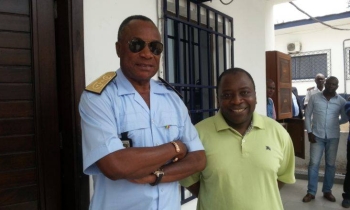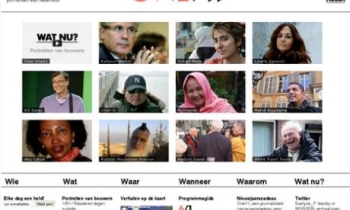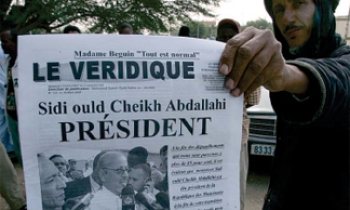SYDNEY, March 30 (Reuters) - Shares in Australian media companies rose sharply on Friday ahead of the introduction of new media ownership laws which are expected to trigger a fresh wave of takeovers among radio, television and newspaper businesses.
The Australian government said late on Thursday the laws would come into force on April 4, ending uncertainty about the timing of the changes which were endorsed by parliament last year.
The laws relax 20-year-old foreign ownership limits on Australia's A$12 billion ($9.7 billion) media sector, and allow cross ownership of newspaper, radio and television interests in the same city.
"Next Wednesday marks a landmark event in Australia media history. The short notice given as to the effective date was unexpected, and could lead to a flurry of activity in the coming few days," Goldman Sachs JBWere analysts said in a client note.
Shares in likely takeover targets, newspaper publishers John Fairfax Holdings Ltd. (FXJ.AX: Quote, Profile, Research) and West Australian Newspapers Holdings Ltd (WAN.AX: Quote, Profile, Research) and radio broadcaster Austereo Group Ltd. (AEO.AX: Quote, Profile, Research) rose.
Fairfax shares were 5.1 percent firmer at A$4.98 at 0332 GMT, Austereo was 4.3 percent higher at A$2.08, and West Australian News jumped 7.8 percent to A$15.80. Shares in radio station operator Southern Cross Broadcasting (SBC.AX: Quote, Profile, Research) rose 3.6 percent to A$16.50.
The laws clear the way for powerful media tycoon like News Corp. (NWS.N: Quote, Profile, Research) boss Rupert Murdoch and James Packer, who controls conglomerate Publishing and Broadcasting Ltd (PBL.AX: Quote, Profile, Research), to do more big deals, although analysts say they are no longer as hungry for local media assets as they once were.
FAIRFAX, AUSTEREO LIKELY TARGETS
Macquarie Equities said Fairfax and Austereo were the two most likely targets. Fairfax's open share register and display advertising revenues made it a strong target, while Austereo was a natural fit for a TV group.
Foreign predators, particularly private equity, were also circling.
"Because a new foreign player does not reduce the number of media in any given market, virtually any media company could be a target," Macquarie Equities said in a client note.
Packer's PBL and Kerry Stokes' Seven Network Ltd. (SEV.AX: Quote, Profile, Research) have already tipped their media assets, including Australia's top two television networks, into multi-billion-dollar joint ventures with private equity firms last year.
"Seven will continue to monitor and pursue investment opportunities, as it does, on an ongoing basis," Seven Media said in a statement on Friday.
PBL rose 4.1 percent to A$19.81 and Seven added 2.6 percent to A$11.50.
Some investment bankers believe a majority of the big deals had already been done, and players like Packer would focus on expanding into gaming while Stokes could look offshore where valuations were cheaper.
A majority stake in Ten Network Holdings Ltd. (TEN.AX: Quote, Profile, Research), Australia's third-largest TV broadcaster, is up for sale.
The new laws guarantee at least five separate media groups must remain in the main cities, and at least four media groups in a regional market.
Foreign investments above 5 percent will still need to be approved by Australia's Treasurer and the government's Foreign Investment Review Board, although the laws scrap limits which had prevented a foreign investor from owning more than 15 percent of a television station or 25 percent of a newspaper.









